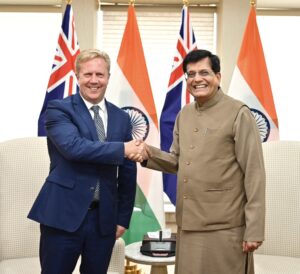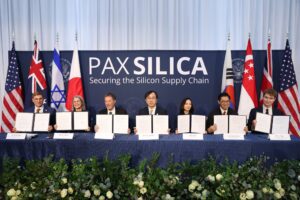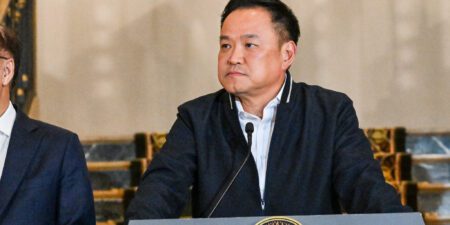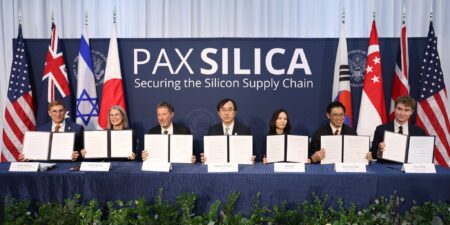
Malaysia Tariff Tracker | August 5, 2025

pdate to clients on new developments in Malaysia’s trade environment.
Context
- U.S. President Trump signed an executive order July 31 reducing the tariff rate imposed on Malaysian imports to 19 percent, down from the initial 24 percent announced in April and subsequent 25 percent as revised in early July. The executive order will take effect August 7, following a seven-day grace period for its implementation.
- This revision comes as Malaysian Prime Minister Anwar Ibrahim and Trump held their first phone call since the president’s victory in November 2024, during which Trump and Anwar discussed the tariff issue. Anwar announced during the tabling of the 13th Malaysia Plan July 31 that Malaysia would receive a lowered tariff rate, concluding weeks-long negotiations between Putrajaya and Washington.
- Prior to the phone call, Malaysia had facilitated a successful unconditional ceasefire between Thailand and Cambodia with the support of the United States and China, although the temporary peace remains fragile as peace talks continue. The brokering of the ceasefire helped improve Malaysia-U.S. relations, culminating in the phone call between Trump and Anwar, although it may not lead to a further reduction in tariffs. Trump also agreed to attend the 47th Association of Southeast Asian Nations (ASEAN) summit, which will be hosted by Malaysia in late October, but this has not been confirmed by the White House.
Significance
- Investment, Trade and Industry Minister Tengku Zafrul Tengku Abdul Aziz said Malaysia has agreed to reduce tariffs on 98.4 percent of U.S. products. Washington is open to removing tariffs on upstream agricultural goods, commodities and goods that cannot be produced domestically in the United States, such as cocoa, rubber and palm oil. At the same time, semiconductor and pharmaceutical exports to the U.S. will continue to enjoy zero-rated tariffs, subject to further studies on sector-specific tariffs by the United States, now under review. U.S. Commerce Secretary Howard Lutnick indicated earlier that the administration would release the results of the Section 232 investigations on semiconductors within two weeks of July 27.
- Malaysia agreed to abolish the requirement for social media platforms and cloud service providers to contribute 6 percent of their total revenue in the country to the Universal Service Provision fund and the directive for all Domain Name System (DNS) traffic to be redirected through local DNS services. The country will also look to impose a digital service tax and other similar taxation policies in a nondiscriminatory manner. However, cloud service providers and social media platforms will still be subject to criminal liability under Malaysian law.
- Tengku Zafrul stressed that no compromises were made on the “red lines” that Malaysia had drawn earlier, including on government procurement, domestic equity ownership and Bumiputera affirmative action policies, which the country deems essential to ensuring socioeconomic stability and growth. Malaysia is set to recognize U.S. halal certification and facilitate the import process for halal-certified products into Malaysia without lowering the country’s halal standards. Similar arrangements are also in the works to enable the facilitation of market entry and recognition of standards for U.S. dairy, automotive, medical devices and pharmaceutical products without compromising on established local standards.
- Malaysia stood firm in rejecting demands from U.S. negotiators to abolish excise duties, including on automobiles, tobacco and alcohol. Tengku Zafrul categorically denied claims that the United States requested exclusive access to rare earth products as part of the tariff negotiations, with the government holding firm to its policy of having all rare earth elements processed in country.
Implications
- The Federation of Malaysian Manufacturers views the tariff reduction positively as a timely and strategic move in light of the current global trade environment. The tariff reduction allows Malaysia to remain cost competitive, with several export-oriented industries such as electrical and electronics, machinery and equipment, rubber-based products and processed industrial goods expected to benefit from improved competitiveness and increased demand.
- Institutional investors believe that the 19 percent tariff revision represents a best-case scenario in light of domestic and global sentiments and a fair compromise given Malaysia’s current stance on geopolitical matters. The 19 percent tariff simultaneously imposed on a few other Southeast Asian countries levels the playing field despite the increase in the cost of doing business within the region.
- The Ministry of Investment, Trade and Industry — in collaboration with other government entities, including the Malaysian Central Bank — will look into mitigating the impact of tariffs on Malaysia’s exports, particularly on micro, small and medium-sized enterprises (MSMEs). This is reflected in key government policies such as the 13th Malaysia Plan and the New Industrial Master Plan 2030, which focuses on domestic supply chain resilience and enhancing the competitiveness of MSMEs.
We will continue to keep you updated on tariff-related developments in Malaysia. If you have any comments or questions, please contact BGA Malaysia Senior Director Sadiq Noor Azlan at msadiq@bowergroupasia.com.
Best regards,
BGA Malaysia Team

Sadiq Noor Azlan
Deputy Managing Director
Sadiq brings his deep understanding of political dynamics and ability to recognize key government stakeholders to his role as director for BGA Malaysia. Sadiq joined BGA in mid-2019, after serving as special officer to the minister of finance under two different administrations. In addition to advising on topics ranging from the country’s annual budget, legislative procedures, subsidy rationalization and election campaigns, he managed engagement with other ministries, private and public agencies, government-linked companies and multinational corporations, foreign leaders, business chambers, media personnel and politicians. Sadiq obtained his bachelor’s degree in economics from the University of Massachusetts Amherst. He spent over ... Read More
×























